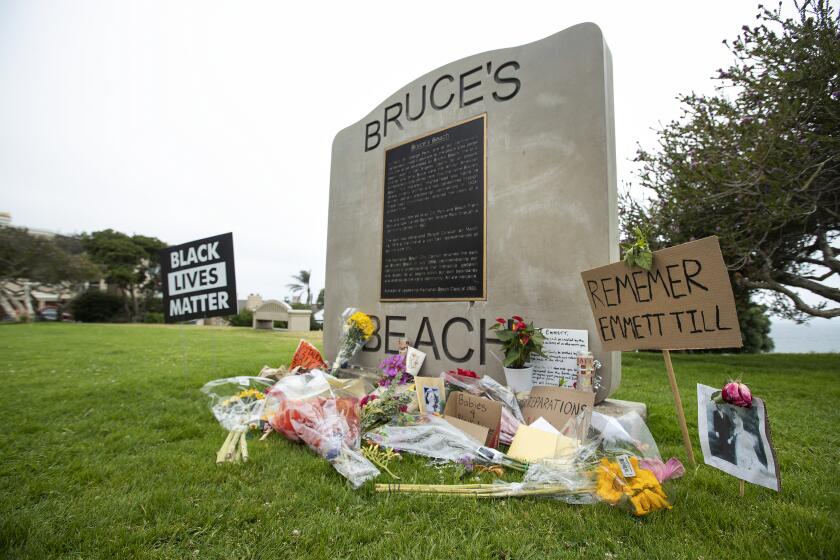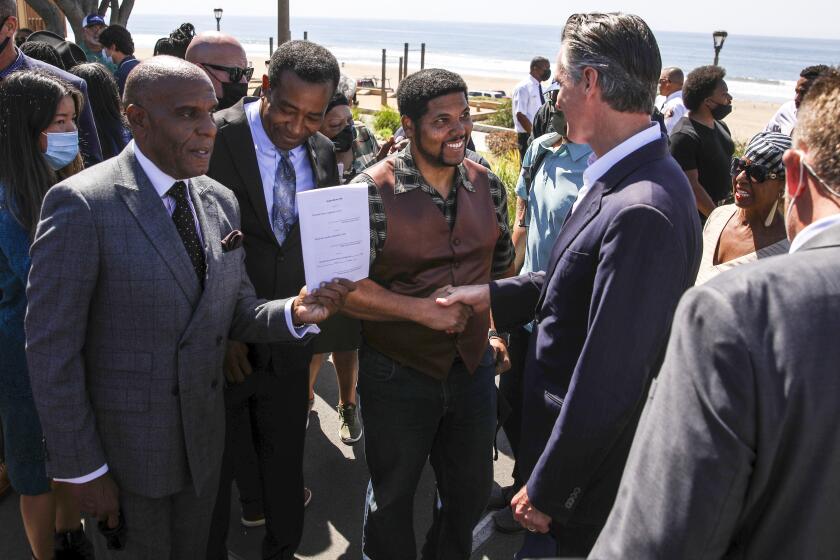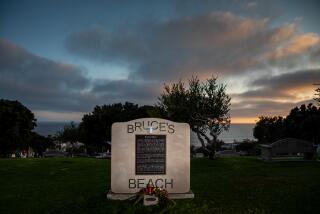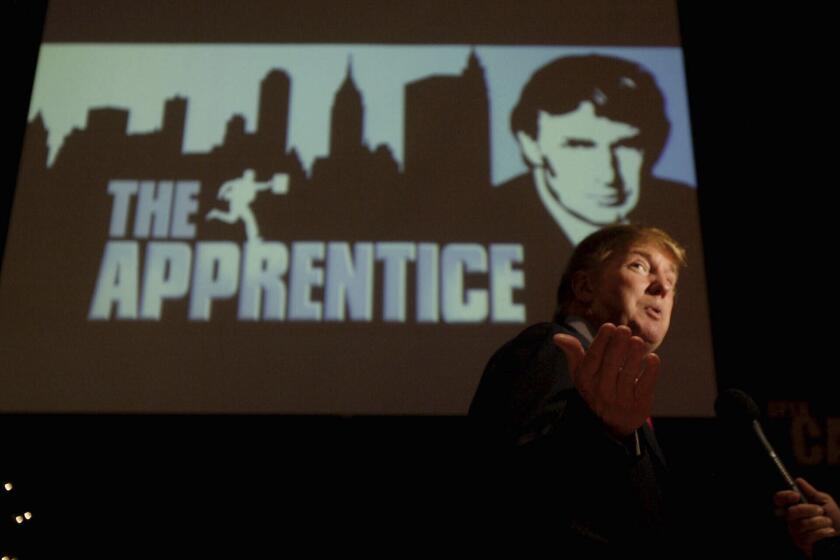Opinion: An apology is nice but the Black families and communities of Bruce’s Beach deserve more
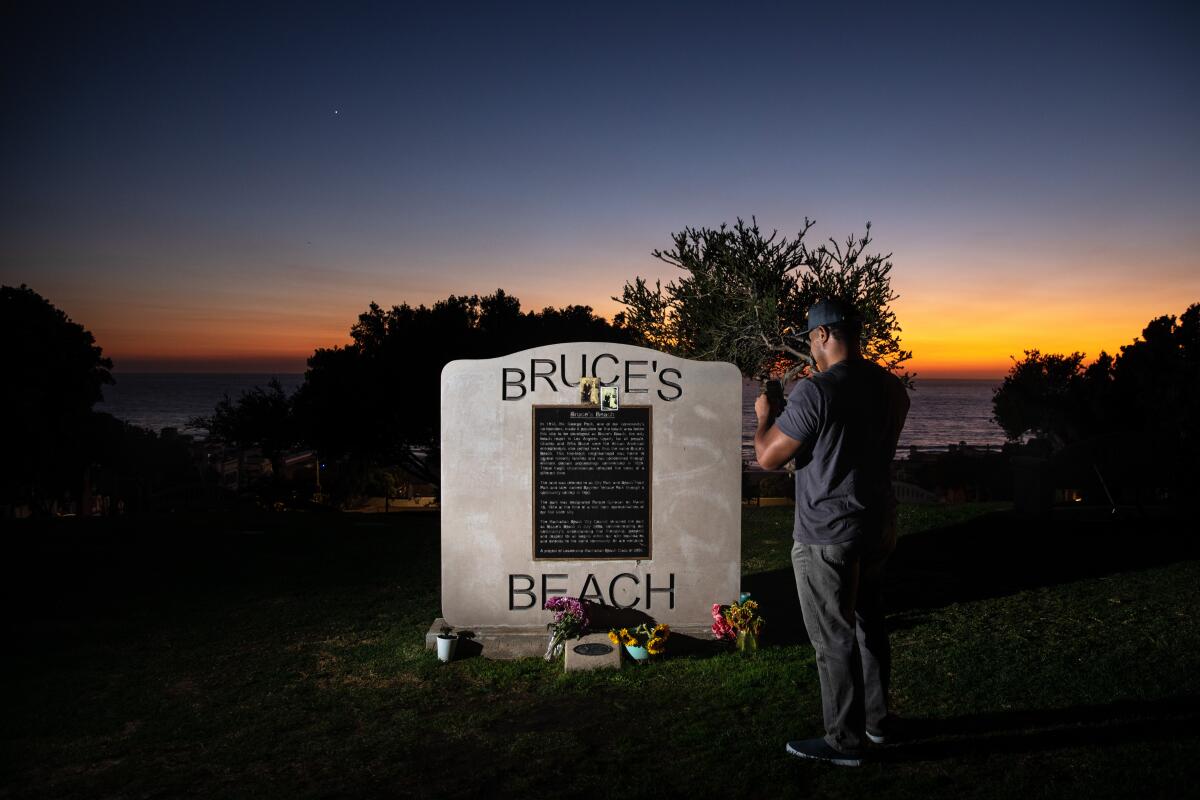
Yesterday, the city of Manhattan Beach finally passed a resolution to formally apologize for the racially motivated and discriminatory condemnation of the property owned by Willa and Charles Bruce, as well as the other Black families living in Manhattan Beach in the 1920s — the Prioleaus, the Pattersons, the Sanders and the Johnsons.
This apology, late as it’s come, is nonetheless an important first step.
Recognition and ownership of the direct and deliberate government actions to dispossess Black people of property are important to counter the white supremacist narrative that the economic condition that Black people find themselves in today is the result of cultural or behavioral factors. Rather, the persistence of Black poverty and the racial wealth gap have a primary cause — decades of government policy and actions to deprive Black people of the ability to own property and build wealth.
In Manhattan Beach, one can draw a straight line from the city’s racially motivated eminent domain action of the 1920s to the fact that today, the city has nearly the smallest percentage of Black residents in Los Angeles County, about 0.5%.
Not everyone is happy the family of Willa and Charles Bruce are selling their beachfront property for $20 million, just months after it was returned.
The apology was necessary and appropriate, but there’s more to do. Manhattan Beach should provide restitution or compensation to the Black families that unjustly lost their property or business.
Although the Bruce family recently saw its land returned by Los Angeles County, the Bruces have never received compensation for the loss of their successful business. And the other Black families’ land is still owned by the city of Manhattan Beach — and enjoyed by the residents of the city as a public park. To start, the city should return that land to the families who lost it or pay them for the fair market value of the land today.
But what the families lost was far more valuable than just parcels of land. They lost the opportunity to create and share inter-generational wealth, the type of wealth that can forever transform the socioeconomic trajectory of families and communities.
The return of the land (or its value) cannot undo the harm caused to the city’s once thriving Black community. The city should take steps — like offering down payment assistance or low-interest loans — to actively encourage more Black home ownership within its limits. The city should also offer other incentives — like subsidized rent — to encourage Black business owners to return to Manhattan Beach.
Most Black-owned property seized doesn’t have what the Bruce’s Beach case does: a record of advocacy and evidence that make the case for restitution.
These steps are important not just for the Black families who were victims of Manhattan Beach’s unjust actions or more broadly the Black community, but they are important for all of us. When the government acknowledges that it has violated our core democratic principles of justice and equality but refuses to take steps to redress its actions — it weakens our democracy by undermining the public’s confidence in our governmental institutions. When our confidence in democracy decreases, we will not invest in it and our democracy becomes fragile and at risk.
The reverse is also true: When the government accepts responsibility and couples that responsibility with action to remedy past wrongdoing — our democracy is strengthened. Our trust in, and respect for, our government institutions increase, we invest in our democracy, and it remains strong and secure.
Manhattan Beach has finally taken the first step in apologizing, let’s hope it follows this up with restorative action. The strength of our democracy is at stake.
George Fatheree is a lawyer who represented the Bruce family in the return of the Bruce’s Beach property.
More to Read
A cure for the common opinion
Get thought-provoking perspectives with our weekly newsletter.
You may occasionally receive promotional content from the Los Angeles Times.
